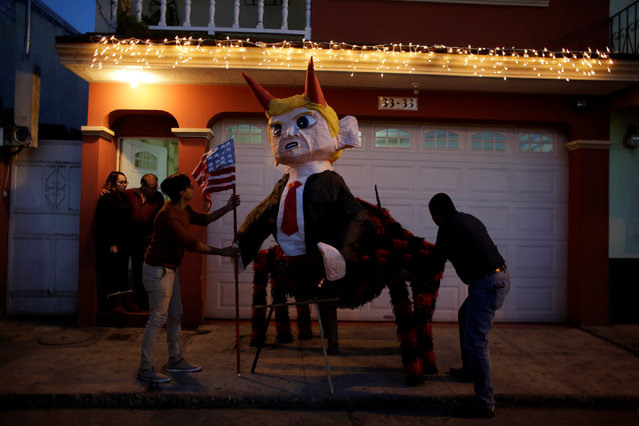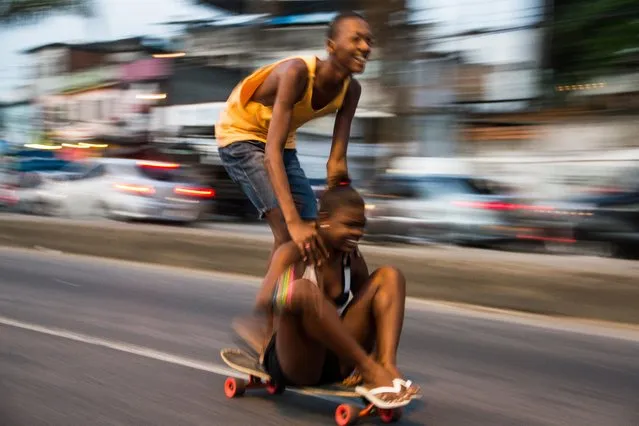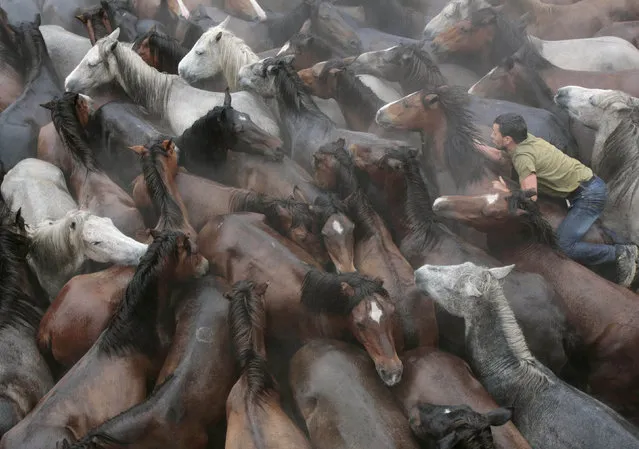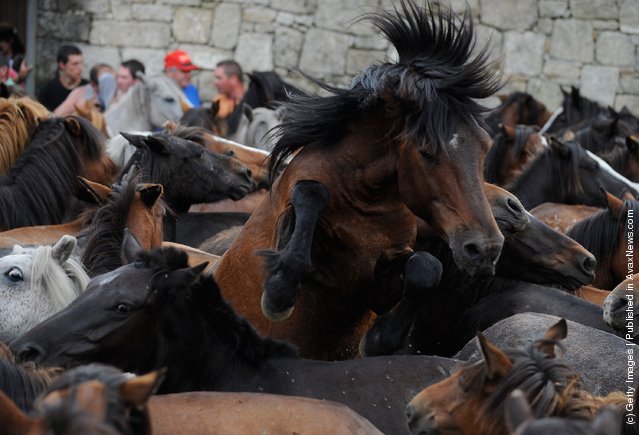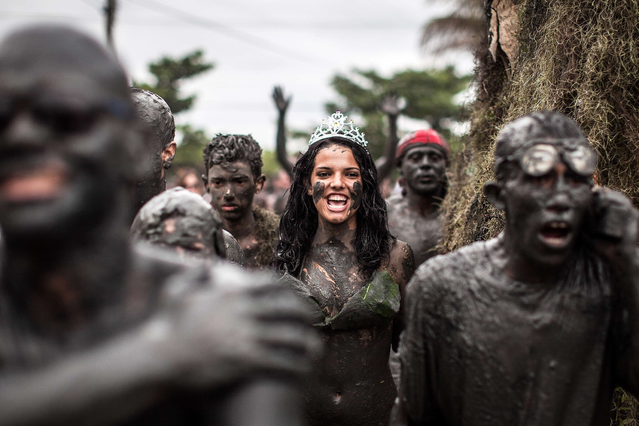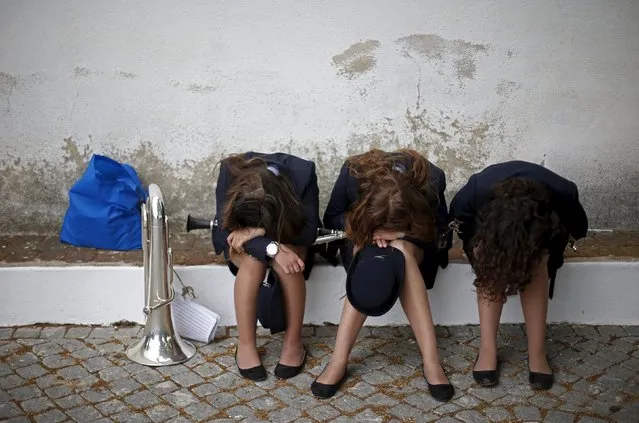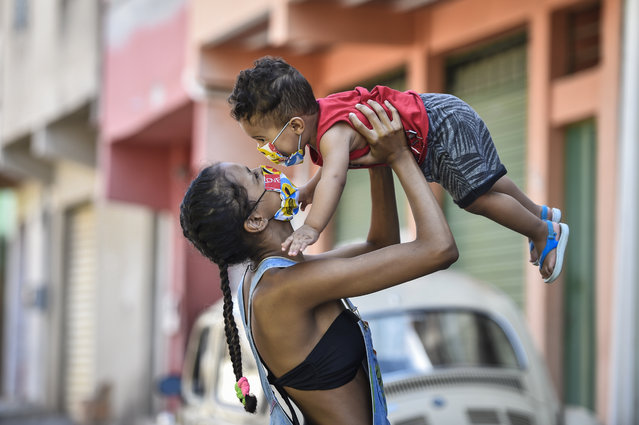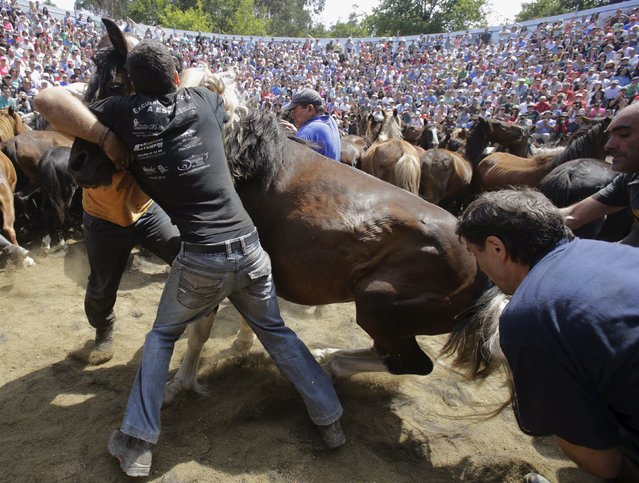
Revellers try to hold on to a wild horse during the “Rapa das Bestas” traditional event in the village of Sabucedo, northwestern Spain, July 5, 2015. On the first weekend of the month of July, hundreds of wild horses are rounded up, trimmed and groomed in different villages in the Spanish northwestern region of Galicia. (Photo by Miguel Vidal/Reuters)
06 Jul 2015 09:50:00,post received
0 comments

